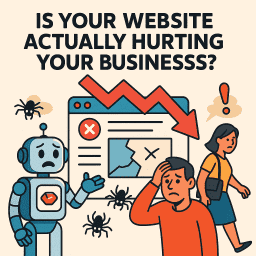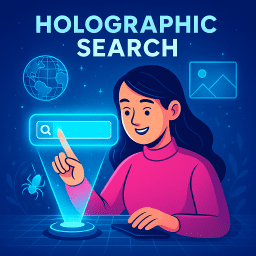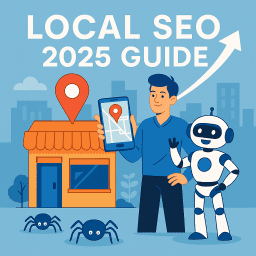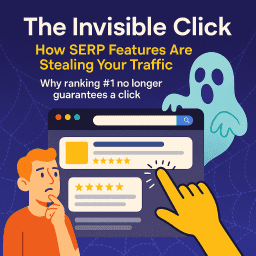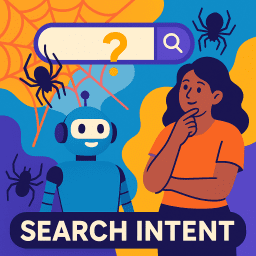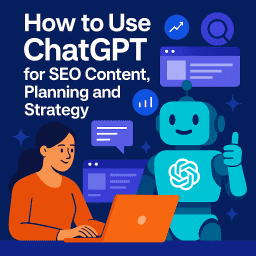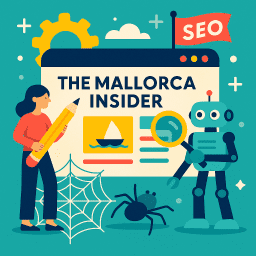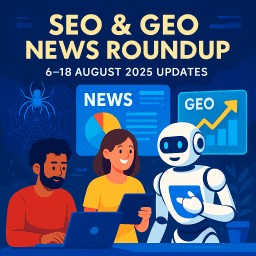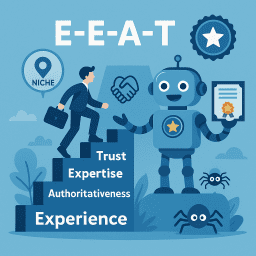How to Optimise for AI Search and Stay Visible Online
🧠 Futureproof your visibility for ChatGPT, Claude, and AI Overviews
🔥 From Search Engines to AI Tools — The New SEO Battle
Search is changing—and fast. While traditional SEO focused on ranking in Google’s top 10 results, users are now increasingly turning to AI tools like ChatGPT, Claude, and Google’s own AI Overviews for instant, conversational answers. This shift is redefining what visibility means on the web. So, how do you stay relevant when people are searching with AI instead of search engines? That’s exactly what this guide is about.
🤖 Welcome to the Era of AI Search
AI-powered search tools don’t just crawl web pages—they generate answers. That means your content doesn’t just need to rank… it needs to be quoted, cited, and understood by machines trained to interpret human language.
Unlike traditional search engines, which present lists of links, AI systems pull from a mix of sources to generate direct responses. If your content isn’t built for this, you may be invisible to the fastest-growing type of search.
🎯 The Goal: Become “Answerable”
Optimising for AI search isn’t about keywords alone. It’s about becoming the source that AI tools refer to, summarise, or link to. You need to build credibility, clarity, and contextual authority.
✅ 1. Structure Your Content Like an AI Would
- 🔹 Use clear question-and-answer formats
- 🔹 Include bulleted or numbered lists for easy summarisation
- 🔹 Add FAQs at the end of your pages
- 🔹 Use short, factual intros that explain your content clearly
- 🔹 Employ descriptive headings (H2s, H3s) that echo user intent
AI tools love clean, scannable structures. If a language model can easily pick out an answer, it’s more likely to feature your site in its output.
🧠 2. Focus on E-E-A-T (Experience, Expertise, Authority, Trust)
Google’s AI Overviews and LLMs like ChatGPT favour sources with proven experience. Here’s how to demonstrate it:
- 📍 Include an About the Author box on every post
- 📍 Link to a dedicated Author or Team bio page with credentials
- 📍 Show real-world expertise—case studies, personal insights, quotes
- 📍 Build backlinks from respected sources in your niche
Remember, AI tools pull from what’s already seen as trustworthy. Give them a reason to trust you.
🔗 3. Be Where AI Looks: Key Source Platforms
Many AI tools crawl or integrate information from trusted public sources beyond your website. You need to be present on:
- 🧵 Reddit – Frequently used by Perplexity, Claude, and Bing Chat
- 📹 YouTube – Transcripts often pulled into summaries
- 📰 Medium, Quora, and Substack – Common AI training data
- 📚 Wikipedia and Wikidata – Power Google’s Knowledge Graph
- 🏢 Google Business, LinkedIn, and Crunchbase – For entity recognition
Get active, post useful insights, and link back to your main website where possible.
📐 4. Add Schema Markup (Seriously)
Schema is the language of structured data, and AI loves it. Implement:
- ✅
FAQSchema - ✅
HowToSchema - ✅
ArticleSchema - ✅
PersonandOrganizationSchemas - ✅
ReviewandProductif applicable
Even ChatGPT and Claude use schema data during citation and entity understanding. It’s invisible to readers, but visible to machines.
📊 5. Include Facts, Figures, and Definitions
- 📌 Include key terms and their definitions in plain English
- 📌 Use up-to-date stats from reliable sources
- 📌 Create glossaries or “What is…” posts
This positions you as an “explainer” and increases the chance of your content being summarised or cited.
🌐 6. Get Your Entity Right
LLMs rely heavily on “entity recognition.” Make sure your business or personal brand is seen as an entity:
- 🧾 Use consistent NAP (Name, Address, Phone) data across the web
- 🧾 Link your website to your social media accounts
- 🧾 Fill out your Google Business Profile and Bing Places
- 🧾 Add
Organizationschema to your homepage
This helps AI tools associate your name or business with expertise in your niche.
📄 7. Write Content That Sounds Human (But Is Machine-Friendly)
- 🗣️ Uses plain, conversational English
- 🗣️ Avoids vague jargon or fluff
- 🗣️ Uses clear logic and transitions
- 🗣️ Answers the question directly in the first paragraph
This makes it easier for AI to quote or paraphrase your text accurately.
📣 8. Use Authoritative Citations
- 🔍 Government websites
- 🔍 Reputable industry blogs
- 🔍 Academic journals or news organisations
AI tools factor in the authority of your citations when determining if your content is credible.
🛠️ 9. Contribute to the “AI Knowledge Loop”
This is more advanced, but valuable: contribute to the platforms or datasets AI is trained on, such as:
- 🔬 Open-source projects on GitHub
- 📘 Community Q&A sites
- 🧠 Publish research or whitepapers
Over time, your contributions can become part of the datasets used to train or fine-tune new models.
🚀 Final Thoughts: It’s Not SEO vs AI—It’s SEO For AI
Think of this shift as the next evolution of SEO. Google isn’t going away, but how people find answers is changing. Visibility in ChatGPT, Claude, Perplexity, and Google’s AI Overviews is the new frontier.
Start now. Optimise for AI search not by guessing the algorithm, but by being the best answer to the questions your audience is asking—no matter where they’re asking them.
📝 Recap and Clarify: Post-Specific FAQs
What is AI search?
AI search refers to search engines powered by artificial intelligence, such as ChatGPT, Bing Copilot, and Perplexity, which provide conversational and summarised answers rather than just links.
How is AI search different from traditional Google search?
Traditional search shows ranked lists of links. AI search generates answers by summarising content, pulling from multiple sources, and presenting results in natural language formats.
Why does AI search matter for SEO in 2025?
AI search tools are becoming more common, especially on mobile and voice devices. Optimising for them helps ensure your content appears in answers, not just rankings.
How can I optimise my content for AI search engines?
Use clear, well-structured answers. Include FAQs, schema markup, concise summaries, and keep your content aligned with user intent and context-rich language.
Does structured data help with AI search visibility?
Yes. Structured data like FAQ, HowTo, and Article schema helps AI tools understand your content more accurately, making it easier to summarise and feature in responses.
What is “source optimisation” in AI search?
Source optimisation means formatting and writing your content in a way that encourages AI systems to cite or reference your page in their generated answers.
Should I still optimise for Google if AI search is growing?
Yes. Google remains the dominant search engine, and many AI tools still rely on Google data. The key is to optimise for both traditional and AI-driven discovery paths.
Can ChatGPT or Bing cite my website directly?
Yes—if your content is high-quality, well-structured, and relevant. These tools often provide citations when their answers are derived from external webpages.
How do I track performance on AI search tools?
Currently, tracking is limited. Some tools like Perplexity show citations. The best way is to monitor referral traffic, brand mentions, and SEO visibility alongside traditional analytics.
What types of content perform well in AI search?
Clear answers, FAQs, definitions, comparisons, step-by-step guides, and expert summaries perform well—especially when semantically rich and free from fluff or keyword stuffing.
The future of SEO isn’t about beating the algorithm—it’s about being the best answer. – David Roche



